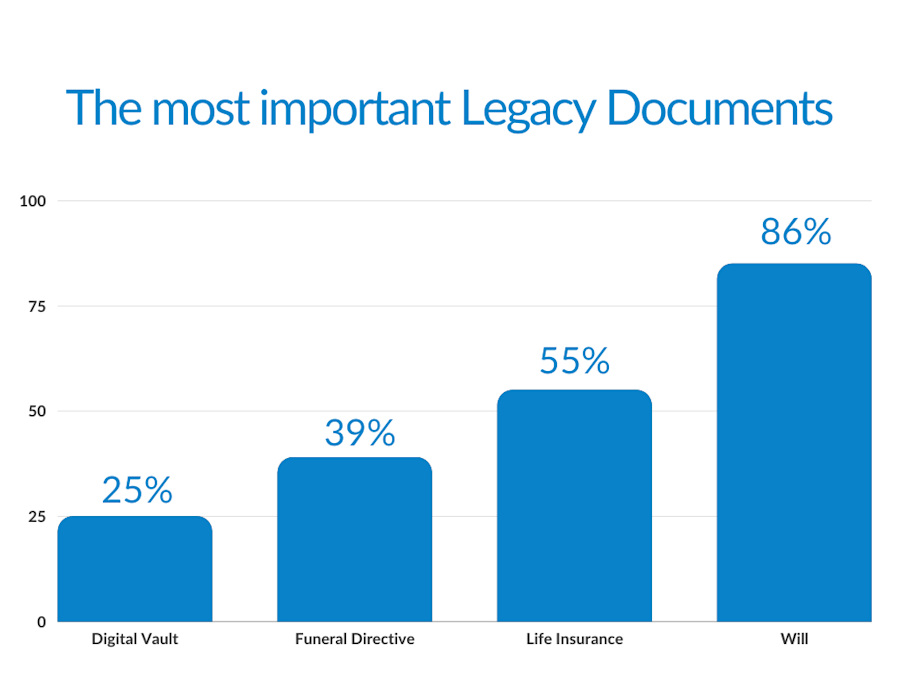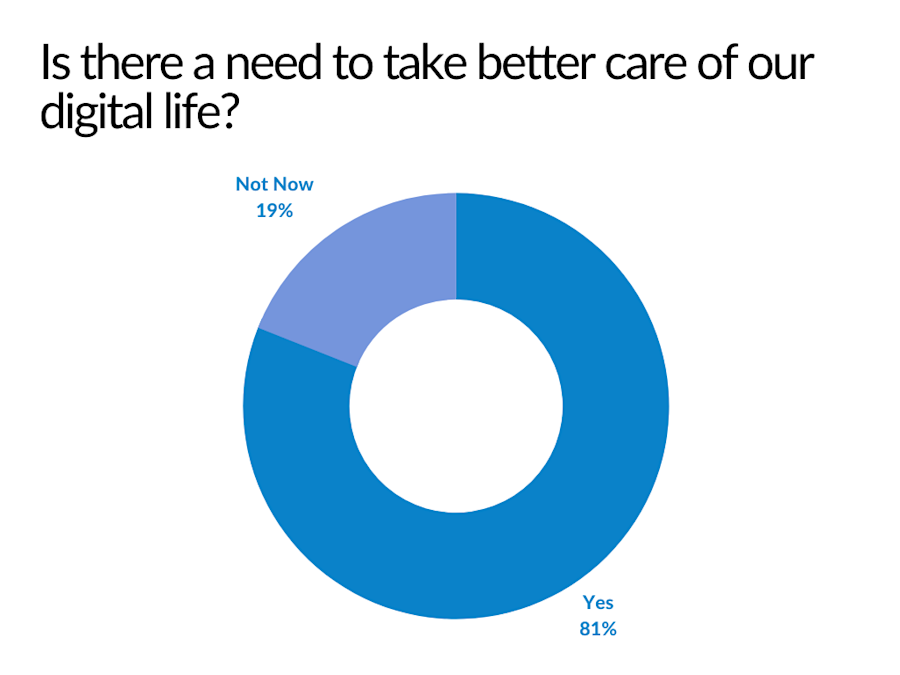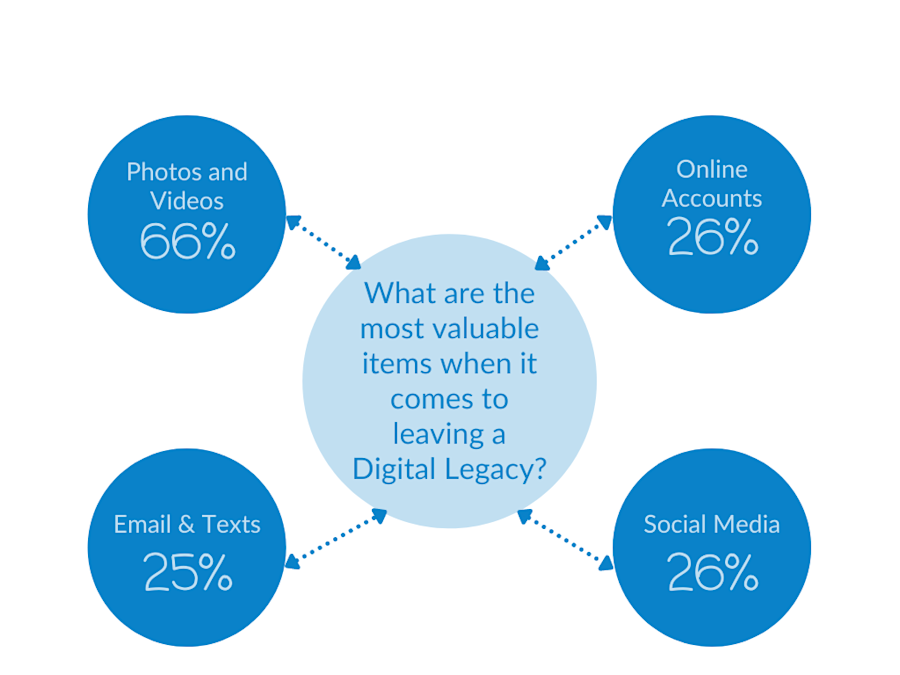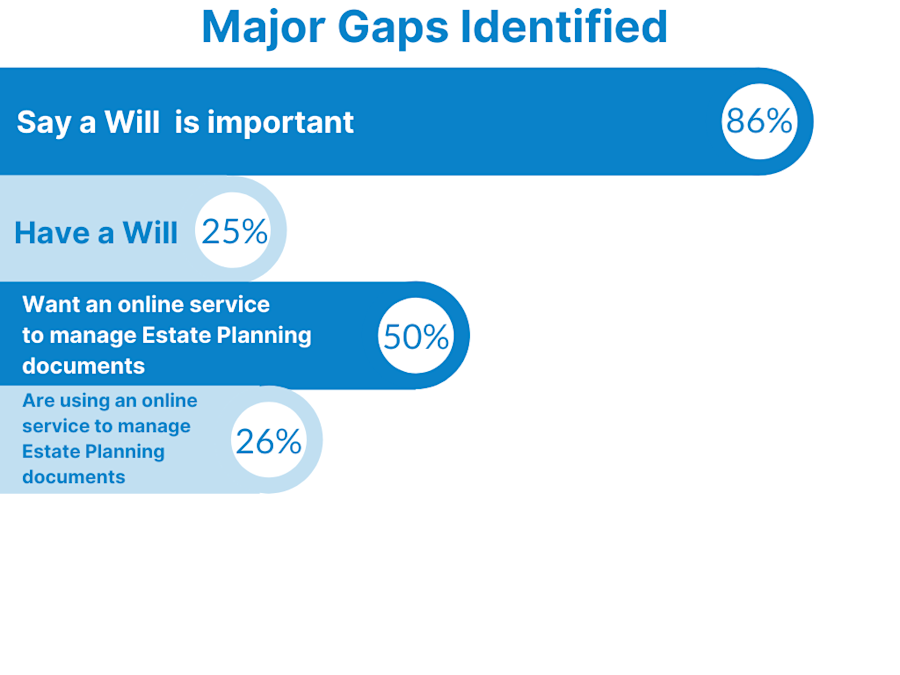
Estate Planning
Survey: Most Americans Unprepared With Their Real Life And Digital One
A new survey conducted by end-of-life platform GoodTrust reveals the trends in how we manage our digital legacy including estate planning documents like wills, as well as family photos and online assets.
Latest Trends in Digital Legacy Management
Major gaps identified in the management of our digital lives
By Robyn Sechler GoodTrust
I can still remember the sounds of my first computer as it struggled to connect to AOL all those years ago. The seemingly random string of clicks, screeches, and beeps lasted at least a minute before it finally went quiet, signifying a successful connection to the internet. The first thing I did at that point, every single time, was to check Instant Messenger to see if any of my friends were signed in, too. Of course, today, to connect with those same friends I simply head to my social media platforms where I can easily, and quickly, connect with anyone, within seconds.
With the landscape of technology ever-changing, GoodTrust conducted a study to understand how U.S. individuals are caring for, and managing their digital assets including photos, videos, legal documents, online accounts, social media platforms, and more. As we increasingly use online interfaces, the number of digital assets we create grows, leaving behind a trail of information to manage. Of these items, we found that the most important legacy document the U.S. population feels is necessary to secure, is a will (create yours today, here).

The idea of digital asset management has not always been a topic of discussion, until recently. More than one-third (37%) of the population feels that caring for our digital assets is more important now than before the start of the COVID-19 pandemic. This may be because we have relied so heavily on the digital world as a way to remain connected during a time when being connected hasn’t always been easy.
It is important to recognize with the convenience of technology comes great responsibility. An impressive, yet not surprising, 81% of people feel that as a society we need to take better care of our loved one’s digital legacy after they pass away. It has been projected that, unless something is done to change it, in the near future there will be more active Facebook profiles of people who have passed away, than of those who are living.

Social media is just one area of our digital life that requires management. Consider the number of photos on your smartphone. How would you feel if they were all lost, or forgotten? Sixty-five percent (65%) of people who responded to our survey felt that photos and videos are the most important of their digital assets. (A clear reason why people should consider a Digital Vault.)

One of the most shocking findings was the gap between those who currently have estate-planning documents and those who don’t. As mentioned above, while 86% of individuals feel that having a will is the most important part of managing a legacy, GoodTrust found that only 25% of individuals have a will of their own. This highlights an astounding 75% of the U.S. population who is currently without a will.
To take this even one step further, we discovered that just more than half of the U.S. population (51%) believes there is a need for an easy-to-use online service to manage their digital assets and estate-planning documents, yet only 26% of individuals are currently using one.

In conclusion, it's unlikely the advancement of technology is going to slow down anytime soon, and therefore, our digital assets are only going to continue to grow - as will the need to manage them (and perhaps assign a Digital Executor). Many people need support in this area to properly protect, create, and secure their digital life, and GoodTrust is dedicated to simplifying the digital asset management experience by providing an easy-to-use, comprehensive service.